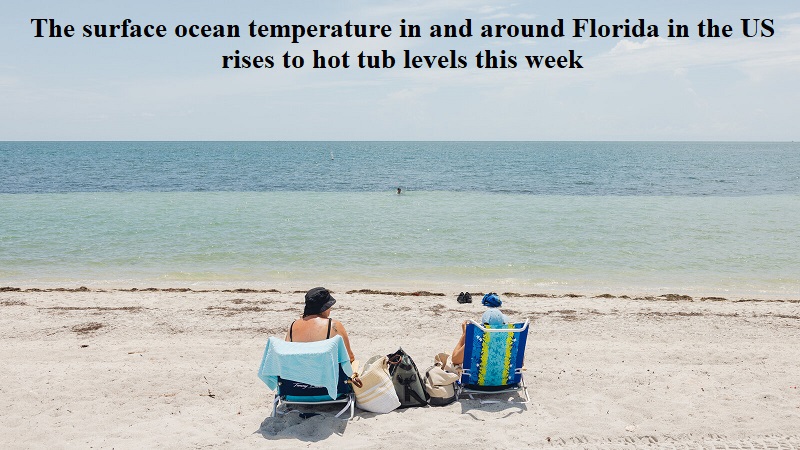
The waters in and around the Florida Keys in the US have experienced a significant rise in surface ocean temperature this week, reaching levels similar to that of a hot tub. Global weather monitors continue to issue warnings about the dangerous impact of warming waters on ecosystems.
A water temperature buoy located in the Everglades National Park recorded a high of 101.19 degrees Fahrenheit (38.44 Celsius) in the waters of Manatee Bay. Other nearby buoys also registered temperatures surpassing 100F (38C) and the upper 90s (32C).
The United States’ National Oceanic and Atmospheric Administration (NOAA) stated that the normal water temperatures for this area during this time of year should be between 73F and 88F (23C and 31C). These findings were published by the NOAA’s National Data Buoy Center.
These recent readings come shortly after previous warnings about the warming of Florida’s waters, as prolonged heat continues to affect various parts of the country.
The intensifying extremes in weather conditions are attributed to global, human-driven climate change. The increasing frequency and severity of severe weather events are seen as symptomatic of climate change.
The United Nations’ World Meteorological Organization (WMO) reported earlier this month that global seas have experienced monthly record-high temperatures since May, partly driven by the El Nino weather phenomenon.
Both the WMO and NOAA have highlighted that temperatures like those recorded in South Florida can have deadly consequences for marine life, thereby posing a threat to ocean ecosystems. The rising temperatures can also impact human food supplies and the livelihoods of those who rely on the seas for their income.
Fishing boat captain Dustin Hansel, while fileting fish in Key Largo, noted that the catch has been declining over the past five summers, and he has observed an increase in dead fish in the waters around Key Largo. He described the bay waters and near-shore areas as “super, super hot.”
NOAA had earlier warned that warmer water around Florida can intensify hurricanes and tropical storms, as these storms gain more energy from warmer waters. Additionally, rising temperatures are severely stressing coral reefs, according to the agency.

Post Your Comments